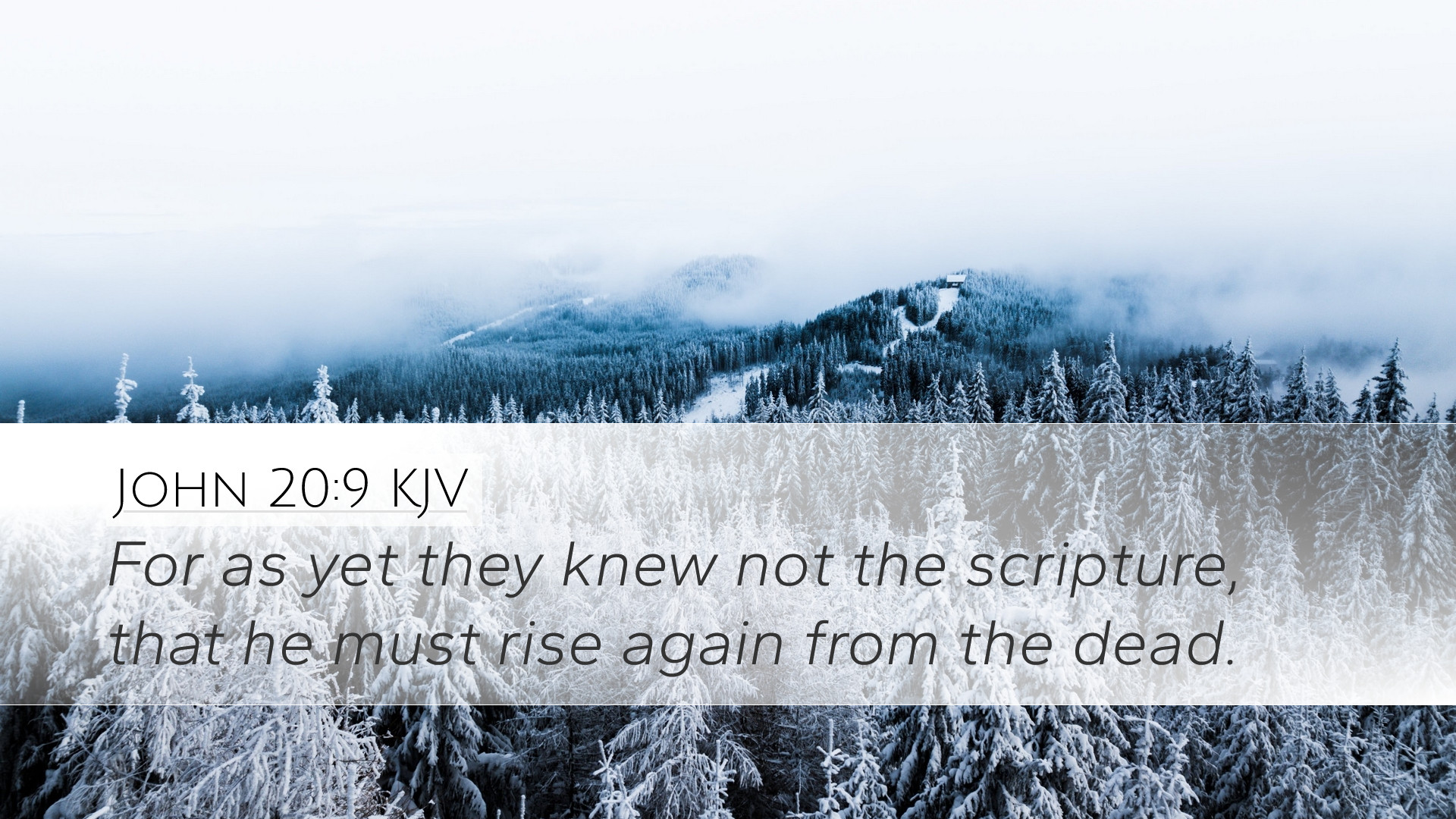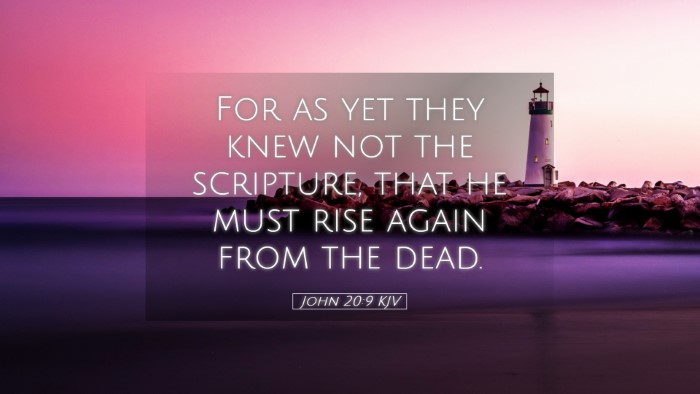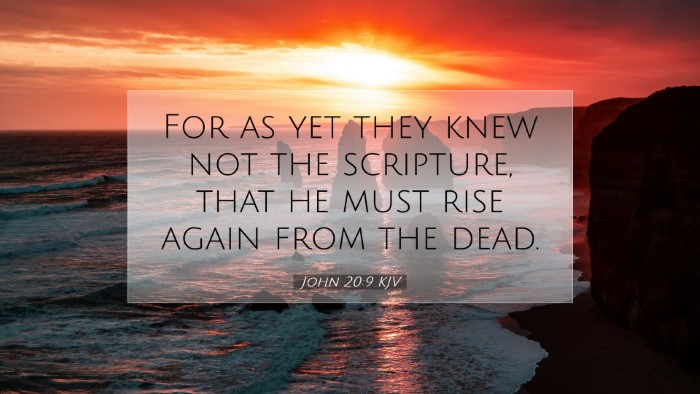Commentary on John 20:9
John 20:9 reads: "For as yet they knew not the scripture, that he must rise again from the dead." This verse is pivotal in understanding the resurrection narrative and the disciples’ journey towards faith.
Contextual Overview
This verse occurs in the context of Mary Magdalene discovering the empty tomb of Jesus and running to inform Peter and the other disciple (commonly believed to be John). The disciples' initial response to the news is disbelief, emphasizing the lack of understanding regarding the prophecies concerning the resurrection.
Insights from Matthew Henry
Matthew Henry remarks on the disciples’ ignorance regarding the Scriptures at this point. He highlights the emphasis on the fulfillment of prophecies regarding Christ's resurrection. Henry suggests that their bewilderment after the resurrection illustrates a common human condition—a tendency to overlook divine truths revealed in Scripture.
- Theological Implication: The resurrection is not only a historical event but a fulfillment of God's promise.
- Human Disbelief: Henry emphasizes the natural disbelief of the disciples which resonates with human experiences of doubt.
Insights from Albert Barnes
Albert Barnes provides a detailed analysis of this verse, suggesting that the phrase "they knew not the scripture" indicates ignorance not just of the specific prophecies, but of the overall message of hope contained within the Scriptures. Barnes notes that the resurrection was foretold in the prophets, and the disciples’ confusion highlights their need for deeper biblical understanding.
- Role of Scriptures: Barnes argues that the Scriptures serve as a foundation for understanding God’s plan and the significance of Jesus' resurrection.
- Encouragement to Seek Knowledge: This ignorance should inspire believers to study Scripture diligently, to avoid similar misunderstandings.
Insights from Adam Clarke
Adam Clarke takes a somewhat different approach, focusing on the disciples’ emotional state and their immediate response to the resurrection. He suggests that while they had witnessed numerous miracles performed by Jesus, their minds had not fully grasped His teachings about rising from the dead. Clarke emphasizes the transformative nature of the resurrection and its impact on the disciples' faith journey.
- The Path to Enlightenment: Clarke posits that this moment of confusion was crucial for the disciples’ eventual enlightenment and faith.
- Impact of the Resurrection: He argues that the resurrection is the cornerstone of Christian faith and that understanding this event is vital for spiritual growth.
Common Themes and Applications
From the insights of these commentators, several common themes emerge which can be of profound significance for pastors, students, theologians, and scholars:
- Understanding Scripture: The necessity of a deep, contextual understanding of Scripture in relation to the life, death, and resurrection of Christ.
- Faith amid Doubt: The acknowledgment of doubt as a natural part of faith development; the doubts of the disciples can provide comfort and encouragement to those struggling with their faith.
- The Resurrection as Central to Faith: The resurrection is not an isolated event but the fulfillment of God’s promises and a catalyst for the disciples’ empowerment and eventual mission.
Theological Reflections
The verse invites deeper theological reflection on understanding God’s word and its implications for daily life:
- The Nature of God’s Promises: Recognizing that God’s promises are firmly rooted in Scripture and are trustworthy, even when circumstances seem contrary.
- Transformation through Revelation: Emphasizing the necessity of divine revelation for spiritual awakening and transformation.
- Hope in the Resurrection: Encouraging believers to hold fast to the hope provided by the resurrection, particularly in times of despair or confusion.
Conclusion
John 20:9 encapsulates the transitional moment from despair to hope within the resurrection narrative. The insights from Matthew Henry, Albert Barnes, and Adam Clarke collectively emphasize the importance of Scripture in understanding the nature of Jesus’ resurrection and its relevance to believers today. This verse thus serves as a reminder that while understanding may be gradual, the ultimate truth—the resurrection of Christ—remains eternal and transformative.


